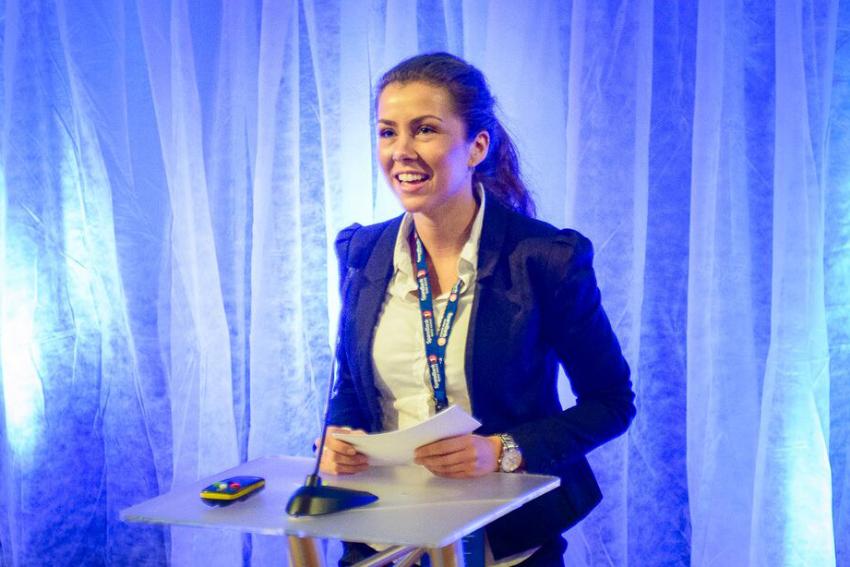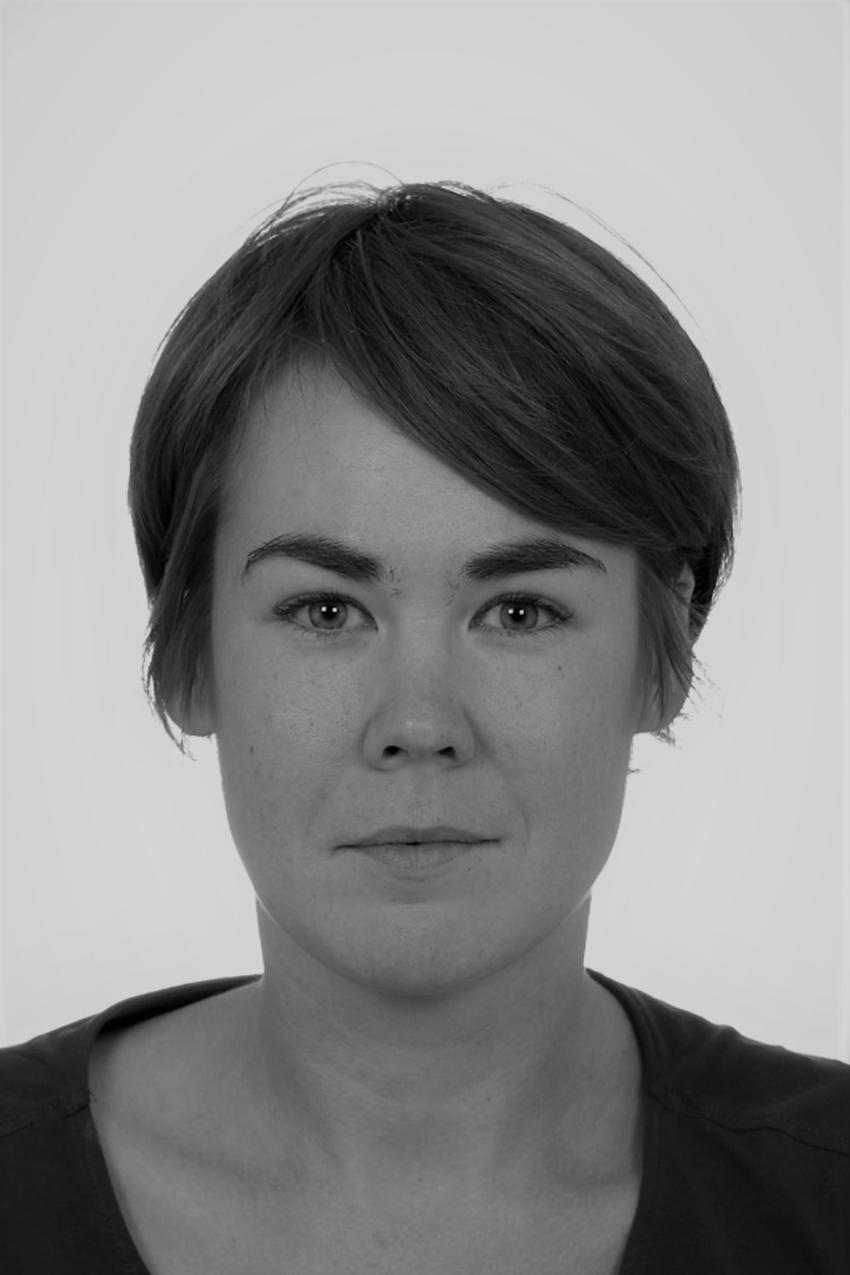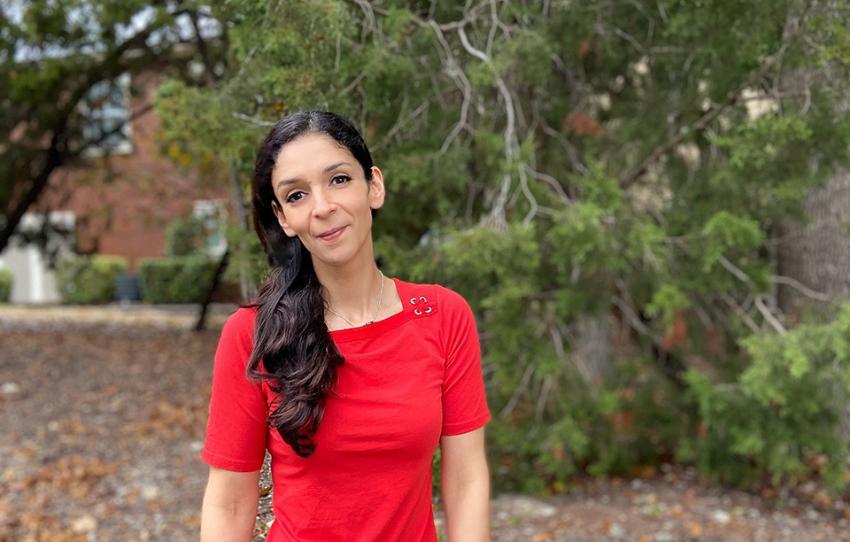I think it’s important to raise awareness of the situation of indigenous peoples and to develop tools to understand contemporary relationships between indigenous peoples, nation states and other groups in society beyond the quite simplistic “colonizer-colonized” angle that is often the starting point of debates in this field.
My name is Tove Holmström, I am 35 years old, originally from Finland but now living and working in Paris, France. I studied the Master of Philosophy in Indigenous Studies at UiT in 2011-2013.
Why did you choose this field of study? I set my mind on indigenous studies already back in 2009, when I was chosen for an exchange programme in Australia at the University of Melbourne, to study Australian Indigenous Studies in theory and practice. I ended up spending two years in Australia, of which one working with local aboriginal “towncamp” communities in the desert in the Northern Territory. I was very happy to be chosen for the Master programme at UiT because my experience in Australia had made me keen to understand international human rights law apply to indigenous peoples and how they can use this to advance recognition of their rights and hold their governments to account.
What is this field of study about? That’s up to you to decide which was the great part about the programme! In addition to the core programme and a natural focus on the Saami people (as Tromsö is part of their territory), students have the possibility to choose electives from a broad range of fields and to define the topic of their individual master's thesis to match your own personal interests. My own thesis addressed the Endorois community in Kenya, and their legal struggles to have their customary land tenure rights recognized by the Government.
Who is this field of study suitable for? I think this field is suitable for students that come from specific academic fields (like history, political science, linguistics or anthropology for example) and that want to explore indigenous peoples and their current situation in general and to apply that to their own discipline. As the degree is inter-disciplinary, it will not give you a degree in a specific field. This can come with advantages, for instance to have a broad understanding of many areas of studies and how these apply to indigenous peoples. A disadvantage by not getting a pure degree in say, human rights law, is that sometimes that is required for certain jobs.
What courses did you take, and in addition to the core courses? I chose international human rights law, peace studies and anthropology which was a good match for my fieldwork and thesis. I particularly enjoyed the course “Anthropology of violence in large-scale conflict” because it gave a very interesting set of tools to analyze contemporary conflicts, in which indigenous peoples may be implied.
Why do you think this field of study is important? I think it’s important to raise awareness of the situation of indigenous peoples and to develop tools to understand contemporary relationships between indigenous peoples, nation states and other groups in society beyond the quite simplistic “colonizer-colonized” angle that is often the starting point of debates in this field. Things are more complicated than they seem, and the programme will teach you that, if you accept.
How are you using your studies now? The short answer to this is not so much. The longer answer is that the Master’s degree, in combination with the work I was doing with an independent UN expert, opened the opportunity to work with the UN Human Rights Office in Geneva and Cambodia. While this work initially focused almost exclusively on indigenous issues I moved into the field of business and human rights because in many of the countries in which the UN Human Rights Office was doing human rights monitoring, conflicts between companies and indigenous peoples were a pressing issue.
My present field of work is responsible business conduct, and I work with companies, international organizations, institutional investors, non-governmental organizations and local communities to make sure that companies act responsibly by preventing and mitigating any negative impacts that they can be involved with – on human rights or labour rights, for example – in their global supply chains.
The past four years I have worked specifically on preventing attacks against local activists that complain about companies’ operations and end up being intimidated, harmed and sometimes killed for doing so. Many of these activists are indigenous, but other than that, there is no specific indigenous angle to my work.
What do you think about student life at UiT? Student life in Tromsö had a lot of advantages: great spaces to study, beautiful surroundings, interesting people and a very international context. It was also very remote, so connectivity was sometimes an issue, and expensive (like Norway is). But all in all, I spent two great years at UiT and in Tromsö!
Andre studenthistorier

Ceselia Høyvik Rokne
Fiskeri- og havbruksvitenskap - bachelor
Tromsø
Arbeidsliv

Mads Martinsen
Fiskeri- og havbruksvitenskap - master
Tromsø
Arbeidsliv

Tove Holmström
Indigenous Studies - master
Tromsø
Arbeidsliv
